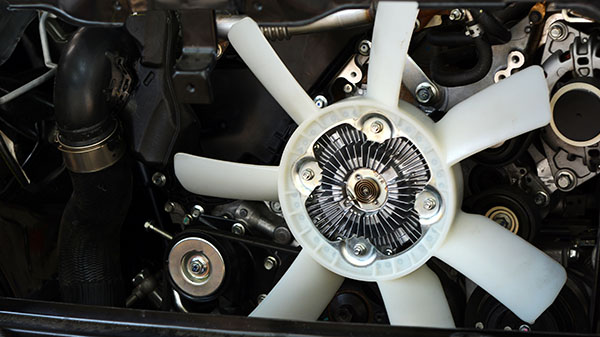
Have you ever wondered what keeps your car's engine from overheating even after hours of driving? It's all thanks to the vehicle's cooling system, the reason behind the longevity and efficiency of your engine.
Your Engine’s Operating Temperature
At the core of your vehicle lies the engine, a powerhouse converting fuel into motion. But with great power comes great heat. The engine operates best within a specific temperature range.
Too cold, and the engine wears down due to incomplete fuel combustion. Too hot, and it risks overheating, leading to potential engine damage or failure. Balancing this thermal act is where the cooling system comes into play, ensuring everything runs just right.
The Cooling System
This intricate network serves one primary purpose: to transfer heat away from the engine and maintain it at an efficient operating temperature. Comprising several key components, including the radiator, thermostat, water pump, coolant, and a series of hoses, the cooling system moves heat away from the engine block, regulates temperatures, and keeps everything running smoothly.
Radiator
Think of the radiator as the front line in the battle against overheating. Located at the front of the vehicle, it uses a mixture of water and coolant (antifreeze) to absorb engine heat and dissipate it into the air, thanks to the airflow as you drive. A malfunctioning radiator can lead to overheating in no time, making it a critical component of the cooling system.
Thermostat
Acting much like the thermostat in your home, this component regulates the flow of coolant to the radiator based on the engine temperature. It ensures that the engine warms up quickly and stays at an optimal temperature range. If the thermostat fails, it can lead to engine overheating or increased wear due to operating too cool.
Water Pump
The water pump is what keeps the coolant moving through the engine and back to the radiator. Powered by the engine's drive belt, it's an essential component that ensures the coolant circulates efficiently, transferring heat away from the engine block and preventing overheating.
Coolant
Coolant, or antifreeze, is the lifeblood of the cooling system. It's specially formulated to absorb engine heat and prevent freezing in cold temperatures. Additionally, it contains corrosion inhibitors to protect the engine and cooling system components from rust and corrosion. Regularly checking and changing the coolant is crucial to maintain the cooling system's health and prevent overheating.
Questions You Might Have (FAQs)
What happens if I ignore cooling system maintenance?
Ignoring cooling system maintenance can lead to engine overheating, increased wear, and potentially severe engine damage, requiring costly repairs.
How often should I replace the coolant in my car?
It varies by vehicle make and model, but a general rule is every 30,000 to 60,000 miles or as recommended in your vehicle's owner manual.
Can a faulty thermostat affect my car’s fuel efficiency?
Yes, a malfunctioning thermostat that keeps the engine running too cool can lead to incomplete fuel combustion, reducing fuel efficiency.
Have you checked up on your cooling system and engine recently? If the answer is no, don't worry! The team at Elite Imports & Auto Repairs is here to take care of it and make your vehicle perform at its best.